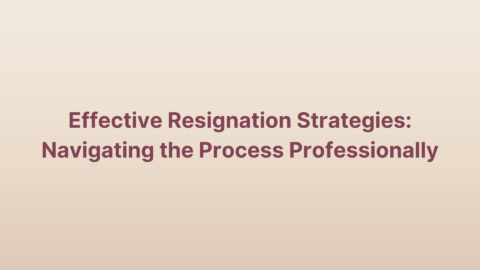Career Development Stages
What are the career development stages? Of course, the staff members go through four familiar career stages. Completing the stages well is too much important for career development. Also, career development depends on good career planning and career management. The time spent in the relevant stages varies from person to person. And, it varies in expectations and needs at each stage. Currently, career stages are said;
Table of Contents
Formation phase,
Career Development phase
Resuming phase
The withdrawal phase.
Process
Truly, it comes out at the beginning of a career. During the formation phase, the person pays attention to the security requirements. As well, it expects support from managers in particular. In this context, it is useful for managers to show closeness to the person. Accepting the role of the guidance counselor is a good way to show it.
Development
The career development phase is the period of transition from one job to another. The transition can be both interagency and internally. Therefore, the individual’s interest in the institution and work is directed at the need for security, success, independence, and dignity. Of course, there is often a greater demand to move to jobs that demonstrate leadership and responsibility.
Resume
We can describe this process as the stages in which the working personnel reach the limits of development and focus on the work they perform. In previous stages, the individual will not be able to make new gains as he has obtained many of his needs that we can call spiritual and material. He can try to preserve his earnings and maintain his creativity. In fact, the value that one will demand most at this stage will be dignity.
Unfortunately, during this period, the individual who cannot further progress in his career will begin to experience psychological and physiological disorders. The reason is that he cannot obtain new satisfactions within the scope of his work. Decreases in its existing success begin to occur. Consequently, it faces what we can call a “mid-career crisis”. Moreover, such a situation refers to itself as a period in which some situations such as job dissatisfaction, work problems, and health problems may increase as it will attract the reaction of managers.
Pullout
During this period, the person completes his career. It provides the opportunity to realize oneself alloy by turning to studies that the person does not have the opportunity to do while working. Career planning and management in health institutions are important. The importance is for both in terms of organization and from an individual point of view, taking into account career stages and life periods. It is important to achieve successful results in human resources management.
Why Career Development?
In this period of time when we have experienced the first quarter of the 21st century, it is not enough to evaluate the success of one’s career by the criteria of receiving a good salary, gaining prestige and status, and having job security. In addition, people can find themselves adapting and developing themselves according to emerging new technologies, receiving new training, learning new knowledge and skills.
Within the concept of careers are the career development and methods that we have already included. These can be career map, promotion, orientation, relocation, executive development, backup plan, valuation center work. As well, everyone in a business, including an employer, employee, and manager, has roles in career development. Each person must accept their own skills, interests, values, and, most accurately, their own career responsibility. In such a situation, the person makes a positive contribution to the institution he has worked with by feeling happy. Thus, the person becomes more enthusiastic when making these contributions by seeing his career come true.
What are Career Planning and Development Roles?
Truly, as the title suggests, career planning and development roles should be considered within the scope of the manager, individual and executive organization.
Firstly, from an Individual Point of View;
- If the individual is aiming to improve himself, he or she must take responsibility for his own career.
- Understand personal skills, interests, and values.
- Collect knowledge and resources on careers.
- It should realize its career plan by setting its goals.
- He should talk to his manager about his career.
- Real should focus on their career plans.
Secondly, from an Executive Point of View;
- Support employee scheduling.
- Discuss career planning.
- The developer must provide the assignments we call.
- Perform and recycle employees on time.
Finally, in terms of organizing team;
- The team should offer different career views.
- Provide career programs and career knowledge.
- The developer and the coach must perform activities.
On the whole, as you can understand from the definitions we express, career planning and development is a moving process that affects both the organization and the employee. In summary, the organization and the individual have different responsibilities in the planning and management of the career. Indeed, the important thing to note here is to create a balance by making comparisons about the needs of the institution and whether the expectations of the individuals overlap.
Why Is Career Planning and Development Important?
Let’s evaluate career planning and development through basic human resources management processes within the scope of recruitment or training. Truly, it would not be wrong to consider this as a human resources management activity that institutions avoid making serious investments in this regard.
In fact, one of the most important reasons for this situation is that both the institution and the employee do not have the gains they want in the short term. However, due to the fact that the competitive environment has become quite serious today, the costs and difficulties, career studies, and planning of health institutions have become even more valuable.
In the final analysis, in line with the needs of the employees for the future, we can take it as certain that the opportunities for competition and success will increase throughout the process of institutions planning the careers of individuals. Besides, in the modern management approach, health institutions should include a wide range of career programs in order to benefit effectively from human resources. This is important both in terms of job satisfaction and effectiveness in the organization.
For further reading, you can visit the article on the website of Fredonia University.

I have a degree in chemical and bioprocess engineering and am now a project manager at Hera Healthcare, and I also have a clothing brand that I co-founded and I am an amateur artist. I have a huge obsession with art history (especially renaissance, baroque and rococo) and I think life imitates art!










